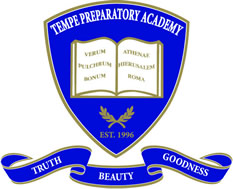By Denzel Rustempasic
Right now is a fantastic time to be a TPA student. For the first time in this school’s history, the creation of a student government is becoming a real possibility. What makes TPA and its students so unique is their utilization of the Socratic method. A large group of these Socratically liberated students have dedicated their time and minds to propelling this project forward, and learning how to craft it so it fits this school’s teachers, students, and administration as best it can. These students make up the TPA “Steering Committee” which has been meeting in Room 402 and holding open discussions devoted to building this organization from the ground up.
The Steering Committee found that the best way to tailor this project to the students was to simply ask them what they thought. On May 4 they released their official Student Government Survey of grades 8-11. Students Claire Carmody, Suz Defusco, and Reeya Devani helped me to collect the results of the survey and bring them to the Steering Committee. Here’s what the Tempe Prep student body had to say about the creation of their student government.
The first 10 questions were a series of constitutional goals, which students could either agree with or disagree with. Here are the statements that were offered followed by the percentage of people who agreed with them.
- Represent students’ feelings, opinions, and ideas (94%).
- Give students a voice in decision-making (94%).
- Encourage students to participate in school activities (75%).
- Emphasize citizenship and democracy (84%).
- Help students understand their role in student government (85%).
- Develop a sense of behavioral responsibility in the individual (79%).
- Aim to understand the concerns of the teachers (82%).
- Aim to understand the concerns of the students (96%).
- Maintain a positive relationship between faculty and students (91%).
- Be involved in social problem-solving within the school (75%).
Providing these statements was necessary to establish the goals of the government, so it’s not a surprise they all garnered a sense of support.
The second page of the survey was more controversial. Instead of providing statements, the second page allowed students to vote on the vital and serious issues the government faced. For instance, Question 11 asked students whether each section should have just one representative: 62% agreed, 19% disagreed, and 19% chose “other” as their final decision.
Question 12 asked whether student government should absorb the Social Committee, and while 32% agreed, 68% (the majority) voted no. Though the Social Committee will not be absorbed, 67% voted that the Social Committee should work with the student government, but remain separate.
The next question was arguably the most important of the survey. Question 14 asked students whether the election should be a drawing of potential candidates, an anonymous vote, or something else entirely: 10% voted in favor of a drawing, 77% voted in favor of an anonymous election, and 13% suggested a variation different from the first two. Though the majority wanted a vote, many were left feeling skeptical.
Question 15 asked if students were worried about the nomination becoming a “popularity contest” and only 22% said no, while 31% said yes and 46% said it depended on the process.
Question 16 asked if people thought TPA would benefit from a student government in the first place and 81% agreed that it would.
Finally, question 17 asked students if they would ever be interested in participating in student government and an enormous 59% said they would.
The Steering Committee vows to stay true to each and every majority opinion offered by the student body. The committee is now in the process of drafting the official constitution, which will be based entirely on the opinions and concerns outlined in the results of the survey.
The largest issue at hand is the challenge of giving students a say in the election process, while ensuring the prevention of a popularity contest. The committee has discussed one solution they think will aid the issue. The idea originated from Headmaster Baum, and was later adopted by the committee and combined with the survey results of the students. The idea would be a system where students are divided into two groups, the “candidates” and the “electors.” Students would choose to either run to represent their section, or instead become an elector and be given an anonymous vote in the process. It would be made very clear to the electors that they are choosing the student responsible for their own representation, so they should make sure to pick the person they believe in, and not the one they like the most. Outside of that, the vote will be completely anonymous, and belong solely to the elector who holds it.
Hopefully the Steering Committee can build an honest and respectable government, dedicated to enriching the Tempe Prep experience.
